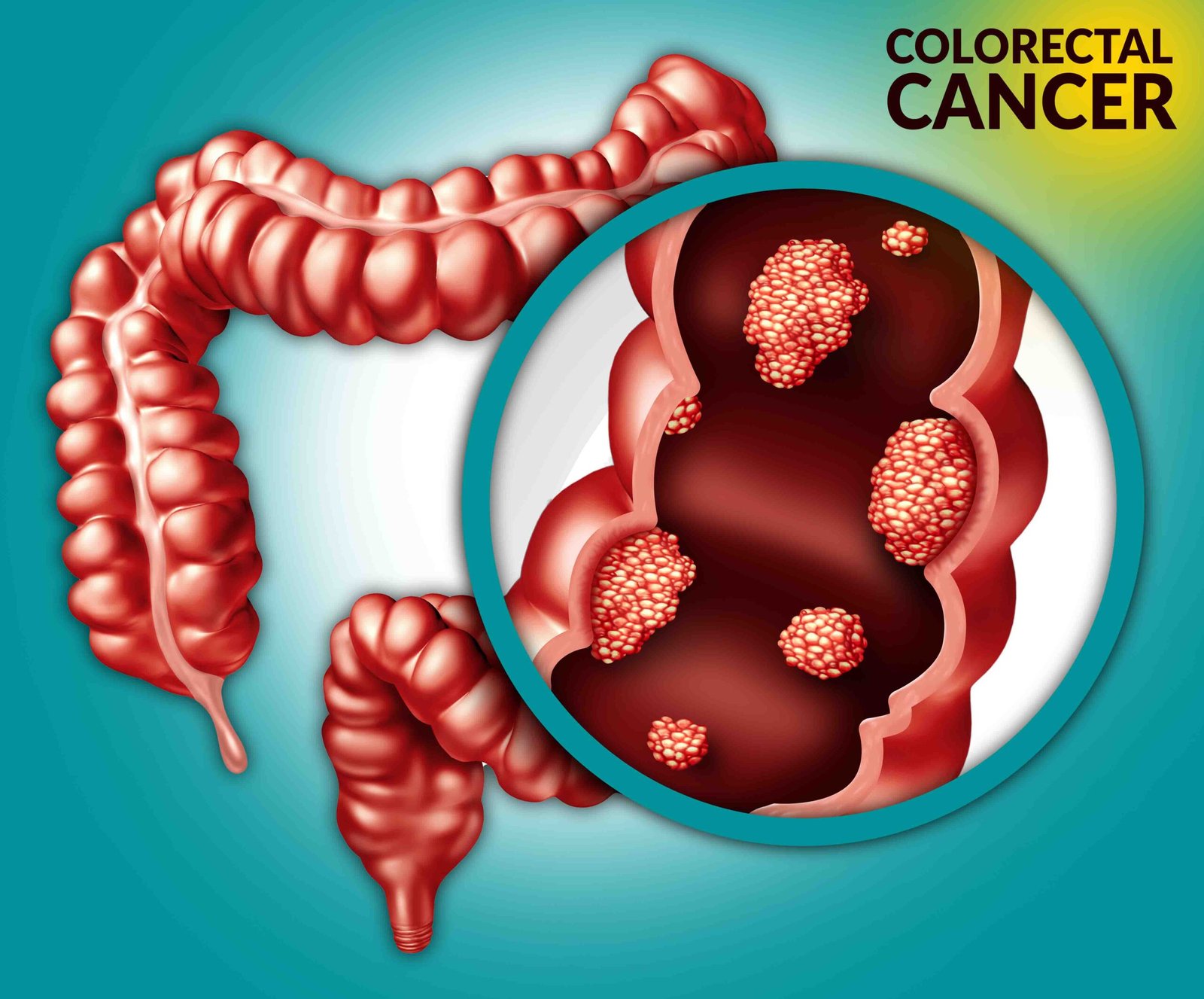HEALTH BLOG
Colorectal Cancer ICD-10 Coding: Decoding the Language of Diagnosis
-
Rahul Priydarss

I
n the United States, where health information is crucial for effective healthcare delivery, understanding the intricacies of colorectal cancer ICD-10 coding becomes paramount.
Table of Contents
Introduction:
Colorectal cancer is a prevalent and challenging health issue in the United States, ranking among the top cancer types. In this article, we will delve into the significance of ICD-10 coding in the context of colorectal cancer, decoding the language of diagnosis and its impact on healthcare practices.
What is Colorectal Cancer:
Colorectal cancer is a type of cancer that develops in the colon or rectum, which are part of your large intestine. The large intestine absorbs water and nutrients from food waste as it moves through your body. It’s also sometimes called bowel cancer or colon cancer. It often starts from polyps, which are abnormal growths that form on the inner lining of the colon or rectum. Most polyps are benign (not cancerous), but over time some polyps can turn into cancer.
What Are ICD-10 Codes and their Importance:
Explanation of ICD-10 and Its Purpose: The International Classification of Diseases, Tenth Edition (ICD-10), is not just a jumble of letters and numbers; it’s a standardized coding system designed to categorize diseases systematically. Its purpose is to facilitate uniformity in medical reporting, enabling accurate billing, research, and epidemiological analysis.
Importance in Medical: For medical coders, ICD-10 is their language that speaks volumes about a patient’s health condition. Coding accurately ensures that healthcare providers are reimbursed appropriately, contributing to the overall financial health of medical facilities.
Specificity in Identifying Colorectal Cancer: Colorectal cancer isn’t a one-size-fits-all condition. The specificity of ICD-10 codes allows medical professionals to pinpoint the exact type, location, and stage of colorectal cancer. This precision ensures tailored treatment plans and accurate documentation, ultimately enhancing patient care.
Colorectal Cancer Statistics in the USA:
Recent Data on Colorectal Cancer Cases: As of the latest statistics, colorectal cancer continues to be a significant health concern in the United States. The prevalence of cases underscores the urgency for accurate coding and a comprehensive understanding of the disease.
Age and Gender Distribution: Understanding the demographics of colorectal cancer patients is crucial for healthcare planning. Analysis of age and gender distribution helps to tailor screening programs and to allocate resources effectively.
Impact on the Healthcare System: The burden of colorectal cancer extends beyond individual patients. The strain on the healthcare system, from diagnosis to treatment, emphasises the need for efficient coding to streamline processes and improve patient outcomes.
Benefits of Accurate ICD-10 Coding:
Improved Patient Care: At the heart of healthcare is patient care, and accurate coding directly contributes to this fundamental aspect. Precise codes facilitate a seamless flow of information, enabling healthcare professionals to make informed decisions and provide targeted care.
Streamlined Billing and Reimbursement: Medical facilities rely on proper reimbursement for their services. Accurate ICD-10 coding ensures that the billing process is smooth, reducing the likelihood of delays or disputes in reimbursement, and ultimately supporting the financial stability of healthcare providers.
Enhanced Epidemiological Research: ICD-10 codes serve as building blocks for comprehensive health data analysis. Researchers leverage these codes to study trends, identify risk factors, and develop strategies for prevention and intervention, ultimately advancing our understanding of colorectal cancer.
Common ICD-10 Codes for Colorectal Cancer:
Overview of Primary Codes: Navigating the extensive list of ICD-10 codes related to colorectal cancer may seem daunting, but a basic understanding of primary codes is essential. These codes encompass the broader categories, providing an initial classification of the disease.
Coding Variations Based on Cancer Stage: Colorectal cancer presents in various stages, each requiring specific attention and treatment. ICD-10 codes not only capture the presence of the disease but also its progression, aiding healthcare providers in tailoring interventions to the patient’s unique situation.
Inclusion of Secondary Codes: To paint a complete picture, secondary codes come into play. These codes account for additional factors such as coexisting conditions or complications, offering a more nuanced view of the patient’s health status.
Challenges in Colorectal Cancer ICD-10 Coding:
Ambiguities and Gray Areas: No coding system is foolproof, and ICD-10 is no exception. Ambiguities and grey areas in coding may arise, leading to potential challenges for medical coders. Addressing these uncertainties is vital for maintaining accuracy in reporting.
Importance of Continuous Education for Coders: Medical coding is a dynamic field, with updates and revisions to coding systems occurring regularly. Continuous education for coders is paramount, ensuring they stay abreast of changes and advancements in colorectal cancer coding.
Mitigation Strategies for Coding Challenges: Facing challenges head-on requires proactive strategies. From establishing clear communication channels between coders and healthcare providers to implementing regular quality checks, mitigation strategies can enhance the accuracy of colorectal cancer coding.

Colon Cancer Symptoms:
▪ Changes in Bowel Habits
▪ Blood in Stool
▪ Abdominal Discomfort
▪ Unexplained Weight Loss
▪ Fatigue
Now every point is explained in detail:-
Changes in Bowel Habits: Persistent changes in bowel habits, such as diarrhoea, constipation, or a noticeable change in stool consistency, could be. indicative of colon cancer.
Blood in Stool: The presence of blood in the stool or rectal bleeding may signal colorectal issues. It is essential not to dismiss this symptom, as it can indicate various conditions, including colon cancer.
Abdominal Discomfort: Persistent abdominal discomfort, cramps, or pain, especially if it is accompanied by other symptoms, should not be ignored.
Unexplained Weight Loss: Unintentional weight loss without changes in diet or physical activity can be a red flag for various health issues, including colon cancer.
Fatigue: Chronic fatigue that persists despite adequate rest and sleep might be a symptom of colon cancer. As cancer progresses, it can lead to anaemia, causing fatigue and weakness.

Frequently Asked Questions (FAQs):
Q: Why is accurate ICD-10 coding essential for colorectal cancer?
A: Accurate coding ensures precise communication among healthcare professionals, leading to improved patient care, streamlined billing, and enhanced epidemiological research.
Q: How do ICD-10 codes contribute to the financial health of medical facilities?
A: Accurate ICD-10 coding ensures appropriate reimbursement, reducing delays or disputes in billing and contributing to the overall financial stability of healthcare providers.
Q: Why is specificity in identifying colorectal cancer important in coding?
A: Specificity allows for tailored treatment plans and accurate documentation, ultimately enhancing patient care and improving outcomes.
-Remember, Always consult with healthcare professionals or Doctors for personalised advice related to medical conditions.
Some Patient Reviews:
J. Arnold: I found this article incredibly helpful in understanding the complex world of colorectal cancer coding. The author breaks down the ICD-10 coding system in a way that’s easy to grasp, even for someone like me who doesn’t have a medical background. It’s a must-read for patients who want to better understand their diagnosis and treatment options.
Michel Maith: This article on colorectal cancer ICD-10 coding provides a clear and accessible overview. It’s an invaluable resource for patients seeking to understand their diagnosis better. Highly recommended for demystifying complex medical language.

Conclusion:
In conclusion, the journey of colorectal cancer ICD-10 coding is complex but integral to the broader landscape of healthcare. From the intricacies of coding variations to the global impact of accurate coding, the role of medical coders and healthcare professionals cannot be overstated. As we navigate this intricate web of codes and healthcare practices, let us remain steadfast in our commitment to precision, collaboration, and ultimately, improved outcomes for those affected by colorectal cancer.
Previous Post





